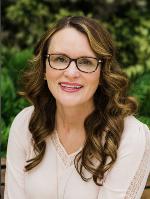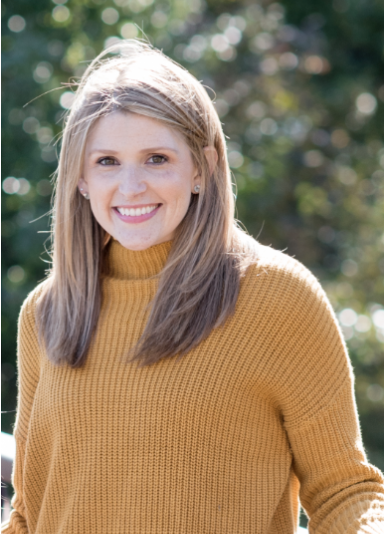Starting with Access: Expert Panel on OER, Climate Education, and Student Action
,
Colorado Convention Center, 607
Presenters







Session description
Purpose & objective
The purpose of this session is to showcase the importance of access as both a solution to the climate crisis and as a best practice in education. Topics and examples will share resources, programs, projects, and initiatives that are designed to keep educators at the center of instructional design and teaching and learning. Panelists from diverse backgrounds, experiences, and roles within education will offer unique perspectives on the current state of climate action education and recommended paths forward that prioritize collaboration, diversity, and equitable access to creating and inspiring change.
Climate action education instructional design priorities:
- global collaboration
- digital agency and action
- project-based learning
- equity, access, and inclusion
- professional development, peer review, and attribution/verification/recognition of learning
The moderator and panelists will share alignments of the ISTE Standards to instructional practices and within examples.
Global Collaborator: Session participants will engage with programs that assemble and mobilize communities of global classrooms to take action for the planet by using digital technologies to connect, share ideas, learn from global experts, and get feedback through multiple perspectives.
Innovative Designer: Session participants will explore ways students can intentionally use the design process to generate ideas and possible solutions to a relevant problem, select technology tools and resources to support progress, and work from phases of inspiration to ideation to implementation as Innovative Designers.
Knowledge Constructor: Session participants will discover ways to support students as Knowledge Constructors in their effective use of data-driven research and in their roles as critical consumers of information and resources during the process of creating connections in the learning process.
Designer. Participants will engage in a process of critical inquiry during the course of the session to examine ways they can use technology, innovative instructional practices, and the design process to personalize learning for students.
Models/programs to be shared include:
1. Environmental literacy, climate education, service learning
2. Education for Sustainable Development (and UN Global Goals)
3. Open Education Resources
4. Communities of Practice
5. Social good global collaboration projects, including the Climate Action Project, Climate Action Schools, and Climate Action Day
6. Community education programs, including Project Kakuma (Kakuma Refugee Camp, Kenya)
7. EarthProject app
8. Creative Commons Open Climate Program
9. SubjectToClimate state hubs and educator resources
Evidence of success will be indicated through creation of a digital toolkit for implementation in the classroom and a digital collaboration board for participants and panelists to connect to each other, share resources, and present questions.
Presenter will use an interactive, multimedia presentation to engage audience members. Open discussion will further encourage attendee participation through sharing, dialogue, and exploration of topics. Weblinks, digital graphics, and video will be used to model concepts. New digital technologies that allow educators to connect and collaborate will be demonstrated and then attendees will be invited to participate in discussion, inquiry, and discovery of practice and perspective.
Outline
5 minutes: Welcome and introductions
5 minutes: Sharing of the collaborative digital board for questions and sharing of resources
10 minutes: Sustainable development and climate education: issues of access
10 minutes: Open education resources as a solution
10 minutes: Examples from the field
10 minutes: Lessons learned and hopes for the future
10 minutes: Questions from the audience and closing thoughts
Supporting research
In Fall 2022, Take Action Global led research efforts inviting teams at
EARTHDAY.ORG and Shift Sustainability to join in research to examine the role of climate educators around the world: the challenges faced, how they overcome them, what approaches are working, and what else is needed to ensure effective climate action education.
In-depth interviews with 14 climate change educators and experts from 10
countries informed the design of a global survey that was conducted in October 2022, which returned 1,012 usable responses from 38 countries. Survey respondents included classroom teachers, department heads, principals and librarians, as well as those working in educator roles in wider organizations, including nature centers and government departments around the world.
Our research sought to address these questions:
● How does the role of teachers as climate educators work in practice, in
classrooms around the world?
● What are the challenges faced, and how are they overcome?
● Which approaches appear to be working for educators already engaged
with climate action in their communities?
● What else is needed to ensure effective climate action education?
Key findings indicated that:
- Teachers want cross-curriculum projects with real-life impact that allow
climate action to be present in students’ everyday lives.
- There are perceptions of a significant disconnect between teachers and
educational leadership in the work of taking action around climate change,
with classroom teachers leading the charge in climate action education.
- 71% of the sample wanted to see more promotion of climate education on
a national level, only 5% believed that support from their government was
currently effective.
- More than half of all participants who stated any experience or knowledge
of climate education said they would like to see more action from
principals and school leaders (53%).
Through this study, we identified the five key themes:
1. Inconsistent climate education terminology creates barriers to
collaboration.
2. Where teachers have control, they can overcome challenges – but they
need more help to go further.
3. Educators need more support from local and national policymakers.
4. Innovative approaches are needed to motivate students and young
people.
5. Parents and the wider community play a key supporting role.
While assessing these individual themes, a key component of the overall impact of student outcomes was connected to the robustness and alignment of a cohesive climate action learning program being implemented within the learning environment. As climate action has been identified as a community learning outcome, engagement is key in the development and delivery of a successful learning opportunity across cultural and global contexts. This research, along with other studies, acts to build upon the body of knowledge around the topic of climate action education.
Climate Literacy Petition (Fridays for the Future, EarthDay Org, Take Action Global, 2022, https://www.earthday.org/press-release/fridays-for-future-earthday-org-take-action-global-release-climate-literacy-statement-on-earth-day/) for worldwide access to climate literacy and education programs to ensure a holistic understanding of the ongoing climate and biodiversity crisis and its underlying causes and consequences; supporting a fully integrated, assessed climate and environmental education that will facilitate the development of sustainable innovations and solutions and empower students to actively engage in creating a just, sustainable society; supporting climate and environmental education programs that ensure:
- Access. All schools and universities must include climate change related courses in their programs.
- Equity. Climate education must be available for everyone at every level of education, regardless of their ethnicity, age, sex, or social status.
- Availability. Climate literacy programs should be accessible both on-line and off-line, through education platforms which will bring knowledge both to students, teachers, and adults, beyond borders.
- Integration Across Disciplines. Climate education must be integrated into the core values and content across the curriculum. Students must learn about the scientific, social, and ethical dimensions of the climate crisis.
- Professional Training and Professional Development. All education professionals must be trained in climate education and be provided with lesson schemes and teaching materials.
- Support for Climate Anxiety. Education institutions must provide the tools and support to help teachers and learners cope with climate anxiety and mental health issues.
- Active Citizenship. Education institutions must engage and provide students opportunities for active citizenship to take responsibility for nature and society.
- Innovation and Infrastructure. Education institutions must be innovators. Schools must be NET0 by 2030 and all newly built schools must be emissions-free.
Creative Commons recently published "A Landscape Analysis of Open Climate Data" : https://creativecommons.org/2023/08/08/surveying-the-open-climate-data-landscape/
Background:
The research for this report started with a fundamental question: “What climate data exists, and what can I do with it?” To reach an answer, CC conducted a landscape analysis to better understand the permissible uses of existing large climate data sets. We surveyed a range of organizations that provide climate data on behalf of national, intergovernmental and/or global populations and are both publishers and sources of climate data. This approach enabled us to assess the current status of major sources of climate data and propose practical ways in which it can be shared more effectively.
Supporting research
Aspen Institute (n.d.). K12 climate action plan. Aspen Institute.
Jensen, V (2021). Getting every school climate-ready: How countries are integrating Climate change issues in education. UNESCO.
Kwauk, C. (2021, August). Roadblocks to quality education in a time of climate change. Brookings.
Kwauk, C., & Casey, O. (2021). A new green learning agenda: Approaches to quality education for climate action. Center for Universal Education at Brookings.
Kwauk, C., & Winthrop, R. (2021, August 12). Unleashing the creativity of teachers and students to combat climate change: An opportunity for global leadership. Brookings.
Lawson, D. F., Stevenson, K., & Carrier, S. J. (2019, May). Children can foster climate change concern among their parents. Nature Climate Change, 9(6), 1-5.
NAAEE (2021). Identifying effective climate change education strategies. University of Florida.
OECD (2021, January). Green at fifteen: What schools can do to support the climate. Education and Skills Today.
Rost, L., Cooke, J., & Fergus, I. (2021). Reimagining climate education and youth leadership: Survey report. Sida.
Torralba, A., & Kwauk, C. (2021, December 8). New research: World fails in climate education despite urgent need to act. Education International.
UNESCO (2021). Learn for our planet. A global review of how environmental issues are integrated into education. UNESCO.
UNESCO (2021). Reimagining our futures together: A social contract for education. International Commission on the Futures of Education. UNESCO.
UNESCO (2021). Teachers have their say: motivation, skills and opportunities to teach education for sustainable development and global citizenship. UNESCO.
UNESCO. (2020). ACE national strategic planning framework for the United States. UNESCO.
UNESCO (2020). Education for sustainable development: A roadmap. UNESCO.
UNESCO. (2016). Action for climate empowerment: Guidelines for accelerating, training, and public awareness. UNFCCC-UNESCO.
United States Global Change Research Program (n.d.). National climate assessment.
Session specifications
Laptop: Chromebook, Mac, PC
Tablet: Android, iOS, Windows
Learning Designer
- Collaborate with educators to design accessible and active digital learning environments that accommodate learner variability.
Citizen
- Create experiences for learners to make positive, socially responsible contributions and exhibit empathetic behavior online that build relationships and community.
Global Collaborator
- Students explore local and global issues and use collaborative technologies to work with others to investigate solutions.
| Related exhibitors: | Padlet |
 Return
Return Listen and learn: Panel
Listen and learn: Panel  Trips and Tours
Trips and Tours Recorded Session
Recorded Session